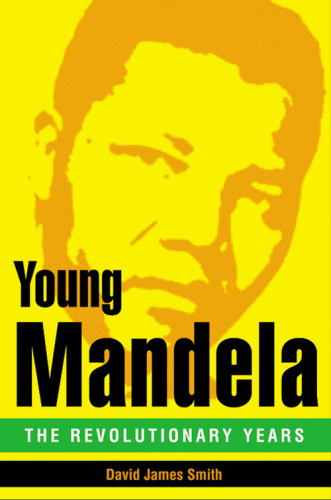
Young Mandela
The Revolutionary Years
کتاب های مرتبط
- اطلاعات
- نقد و بررسی
- دیدگاه کاربران
نقد و بررسی

October 4, 2010
Longtime journalist Smith (One Morning in Sarajevo) digs into newly discovered government documents and firsthand interviews (though none with the supportive but ailing Nelson Mandela himself) in humanizing the iconic leader. Smith ventures deep into the horror of apartheid to trace the burgeoning revolutionary's philosophical trajectories: from the tribal chauvinism and British "gentleman politics" of the African National Congress through the younger, more insistent elements coalescing around mentor Walter Sisulu to Mandela and the ANC's own more militant turn under the influence of South Africa's Indians led by Gandhi, the role of South African Communists, and the pan-Africanism of Marcus Garvey and Kwame Nkrumah. What sets this biography apart is its author's emphasis on Mandela's character and associations in the development of his political career, from boyhood through the Rivonia Trial of 1963–1964; as well as the impact of politics on his personal life, from first wife Evelyn Mase—heretofore neglected in the historical record—to the "woman of his dreams," Winnie Madikizela. No hagiography, Smith's measured study qualifies, lends nuance to, and even contradicts the mythology around Mandela's background and formative influences. Photos.

October 1, 2010
A biography shepherded by the Nelson Mandela Foundation and written by an English journalist attains distance from and clarity on the life of the near-sainted South African leader.
Sunday Times Magazine contributor Smith (One Morning in Sarajevo: 28 June 1914, 2008, etc.) works back in time from the arrest of Mandela on Aug. 5, 1962, for inciting a strike and leaving the country without a passport. With the busting of the underground headquarters of the armed wing of the African National Congress (ANC) the next year, his papers were discovered, implicating him in revolution and sabotage against the apartheid state, which secured his imprisonment on Robben Island for the next 26 years. In this readable, well-calibrated account of Mandela's early life, Smith attempts to get at the making of the revolutionary and leader, from an impoverished young law student to his rise through the ANC ranks, military training and authoring of "How to Be a Good Communist." The son of a Thembu chief who defied the white magistrate, Mandela was the first of his father's four wives' families to be educated. At Fort Hare University, he met his future law partner and ANC colleague, Oliver Tambo. Mandela was already proving to be a student leader and oppositional figure, and he escaped an arranged tribal marriage and met Walter Sisulu, an ANC leader, helped him find a clerkship while attending law school in Johannesburg. Mentored by Sisulu, Mandela was duly enlightened to the appalling conditions imposed on black Africans by the fiercely racist apartheid structure. Tall and handsome, Mandela was also a ladies' man, marrying Evelyn Mase in 1944 (they had several children), before divorcing her for the much younger social worker Winnie Madikizela, in 1958. Increasing leadership in the ANC involved long absences and strains on the marriage, while Mandela was embroiled in the Treason Trial of the mid-'50s, endured a five-year ban on public speaking and schisms within the ANC and advocated armed struggle by 1961.
Smith vivifies the personalities and marshals the revolutionary events without overwhelming the reader.
(COPYRIGHT (2010) KIRKUS REVIEWS/NIELSEN BUSINESS MEDIA, INC. ALL RIGHTS RESERVED.)

October 15, 2010
Neither saint nor icon, South Africas world-famous leader is still very much a hero in this close-up dramatic biography, both personal and political, about his activist years in the underground before he was sentenced to life in prison. Readers will want to read this one not only because British journalist Smith integrates all the histories and biographies out there but also because he includes his own current interviews with many witnesses not much heard before, including those who worked with Mandela in the lawyers offices in Johannesburg and those who hid him when he went underground as the Black Pimpernel and played the houseboy on a big fancy estate. Of course, the political history is front and center, whether it is the prejudice Mandela experienced growing up under apartheid, his journey as leader to get support from other African countries, or the intense debate when the ANC moved from passive resistance to armed struggle. And the interviews add lots of new personal materialnot only gossip (yes, he may have been a womanizer) but also the romance, bitterness, and sacrifice of the heros families.(Reprinted with permission of Booklist, copyright 2010, American Library Association.)

























دیدگاه کاربران